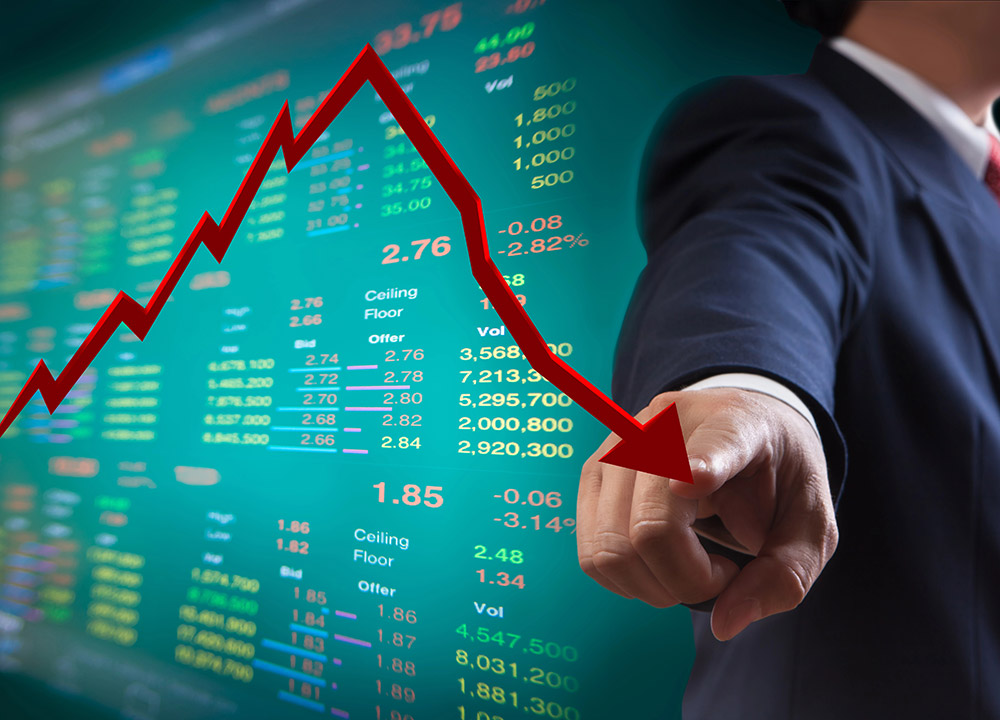The stock market is a complex and dynamic entity, influenced by a multitude of factors ranging from internal market dynamics to global events. The latter, including political unrest, economic announcements, and major geopolitical shifts, can have profound effects on stock prices and overall market behavior. This blog post explores how significant global events shape the stock market, affect investment strategies, and influence market volatility. Understanding these relationships can provide investors with insights that help navigate the uncertainties of global financial markets.
The Influence of Political Events on Market Dynamics
Political Instability and Stock Market Volatility
Political events, such as elections, coups, and policy changes, can lead to significant market volatility. For instance, stock markets tend to react nervously to elections due to uncertainties about future government policies, which might affect economic growth and regulatory environments. A notable example is the US stock market, which often experiences fluctuations in stock prices leading up to and following presidential elections, as investors speculate on the economic direction the new administration might take.
Economic Announcements and Their Immediate Effects
Global Economic News and Stock Market Reactions
Economic indicators such as GDP growth rates, unemployment figures, and inflation statistics play a critical role in setting market expectations. When countries release economic data that exceeds or falls short of market forecasts, it can cause immediate and sometimes drastic reactions in the global stock markets. For example, a sudden announcement of increased unemployment can lead to a decrease in stock prices as market sentiment dwindles.
The Impact of Global Financial Crises
Case Study: The 2008 Global Financial Crisis
Global financial crises typically lead to widespread panic and a quick sell-off in the stock markets around the world. The failure of Lehman Brothers sparked the 2008 financial crisis, which resulted in a significant market crash. The ripple effects were felt across the globe, impacting stock exchanges from the New York Stock Exchange to the Karachi Stock Exchange. This event dramatically demonstrates how interconnected and susceptible the global financial market is to events within the financial sector of major economies.
The Effects of Geopolitical Events
Geopolitical Tensions and Their Market Impact
Geopolitical events, such as wars, trade disputes, and territorial conflicts, can also significantly influence the stock market. These events can disrupt international relations and economic partnerships, leading to increased market uncertainty and volatility. For example, trade disputes between the U.S. and China have historically led to periods of market instability, affecting stock prices not just in the involved countries but also in global markets.
FAQ’s
[sc_fs_multi_faq headline-0=”h3″ question-0=”How do global events affect stock market volatility?” answer-0=”Global events can induce uncertainties or speculation among investors, leading to increased volatility. Events such as economic sanctions, geopolitical conflicts, or major political changes can cause investors to react quickly, impacting stock prices and market stability.” image-0=”” headline-1=”h3″ question-1=”Can global events lead to a market crash?” answer-1=”Yes, significant global events, especially those that are unexpected or particularly severe, such as the global financial crisis of 2008, can lead to market downturns. These events often result in sell-offs and can be devastating for the financial markets in the short term.” image-1=”” headline-2=”h3″ question-2=”How should investors react to global economic news?” answer-2=”Investors should maintain a well-informed, cautious approach when reacting to global economic news. It’s crucial to understand the broader economic context rather than making impulsive decisions based on single events. Diversifying investments and following a disciplined investment strategy can also help mitigate risks.” image-2=”” headline-3=”h3″ question-3=”What are some strategies to manage investment risks during global events?” answer-3=”To manage risks during global events, investors can diversify their portfolios across different asset classes and sectors, use hedging strategies to protect against losses, and maintain a focus on long-term investment goals rather than reacting hastily to short-term fluctuations.” image-3=”” count=”4″ html=”false” css_class=””]
How do global events affect stock market volatility?
Global events can induce uncertainties or speculation among investors, leading to increased volatility. Events such as economic sanctions, geopolitical conflicts, or major political changes can cause investors to react quickly, impacting stock prices and market stability.
Can global events lead to a market crash?
Yes, significant global events, especially those that are unexpected or particularly severe, such as the global financial crisis of 2008, can lead to market downturns. These events often result in sell-offs and can be devastating for the financial markets in the short term.
How should investors react to global economic news?
Investors should maintain a well-informed, cautious approach when reacting to global economic news. It’s crucial to understand the broader economic context rather than making impulsive decisions based on single events. Diversifying investments and following a disciplined investment strategy can also help mitigate risks.
What are some strategies to manage investment risks during global events?
To manage risks during global events, investors can diversify their portfolios across different asset classes and sectors, use hedging strategies to protect against losses, and maintain a focus on long-term investment goals rather than reacting hastily to short-term fluctuations.
Conclusion
Navigating through the complexities of the stock market, particularly in the face of global events, requires a robust understanding of how these events impact market dynamics and investment portfolios. By staying informed and adhering to a disciplined investment strategy, investors can better withstand the impact of significant global occurrences and safeguard their investments.
For more in-depth analysis and expert advice on managing your investments in light of global events, visit our Finhabits blog. Here, we provide a wealth of resources to help you understand market trends, develop resilient investment strategies, and achieve your long-term financial goals.





